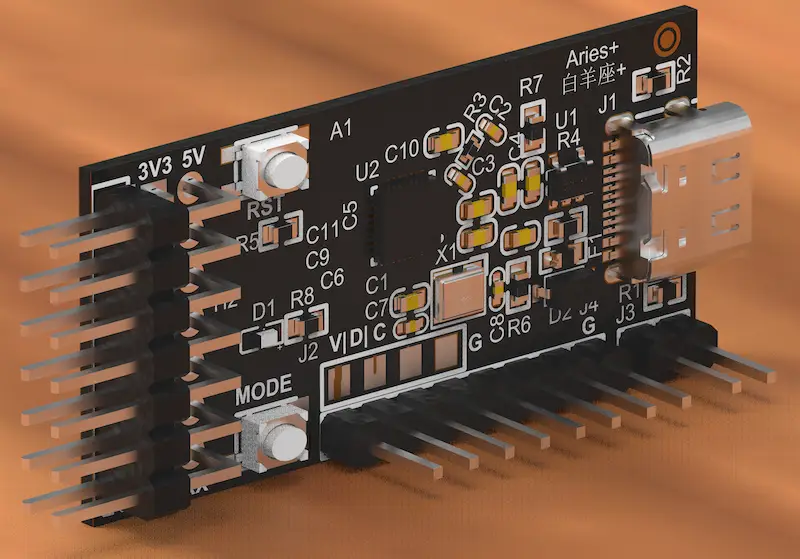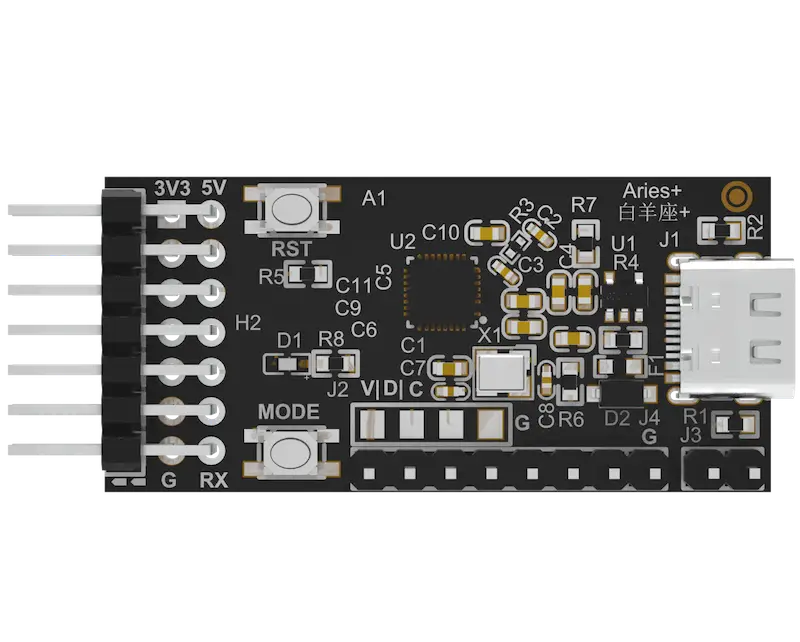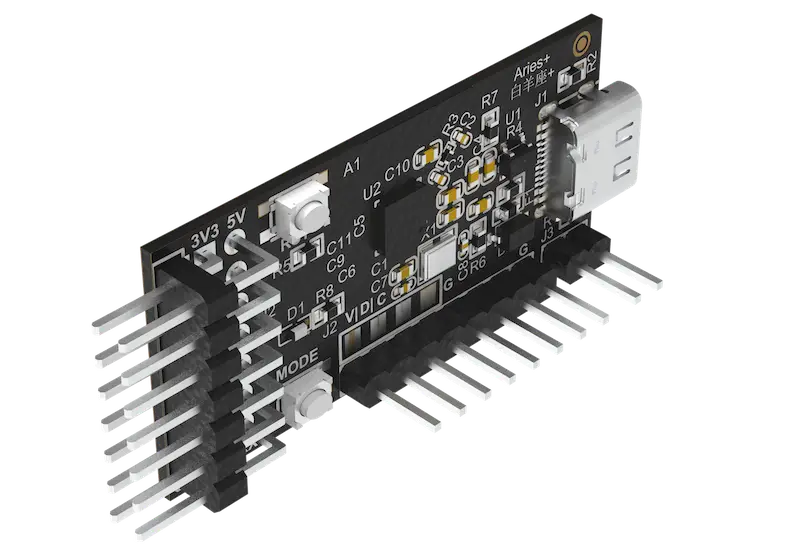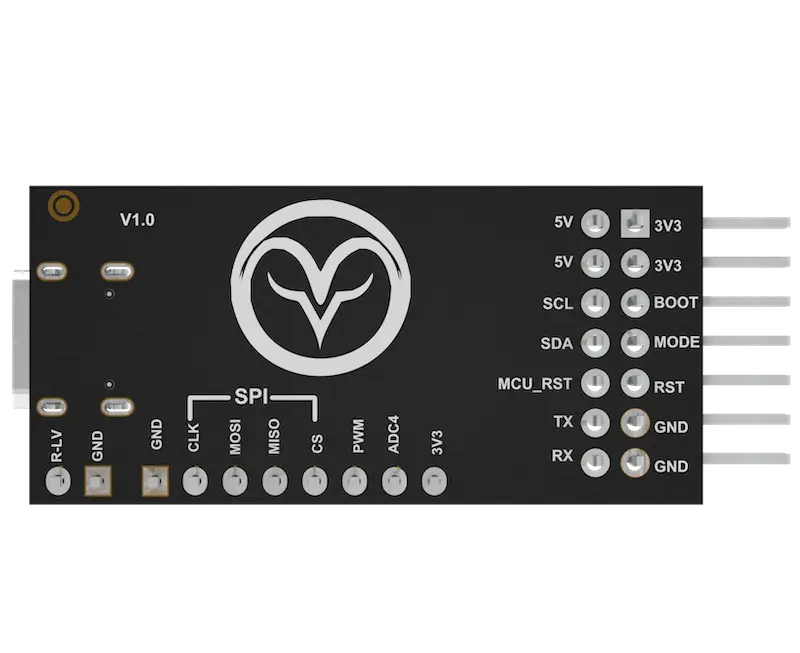Hardware Features
- Compact Design: Only 50mm x 20mm x 1mm, suitable for various development environments.
- Robust Design: Stable PCB design supports long-term operation.
- Flexible Expansion: Pre-configured SPI, PWM, and ADC interfaces provide a solid foundation for future functionality expansions, offering potential for further upgrades and flexibility.
Interface and Pin Functions
Aries Plus offers a rich interface design that supports various communication methods and hardware function expansions:
Type-C Interface
- Supports plug-and-play driver-free mode and high-speed data transfer.
Target Interface
- 5V, 3V3: Voltage output.
- SDA/SCL: Data/clock signal pins for I2C communication with the target development board.
- BOOT: Aries Plus upgrade pin.
- MODE: Matches the functionality of the MODE button on the Aries Plus board.
- MCU_RST: Connected to the reset pin of the target development board chip.
- RST: Matches the functionality of the RST button on the Aries Plus board.
- RX/TX: Receive and transmit pins for the general USB-CDC physical serial interface.
- GND: Ground.
Function Reserve Interface
- SPI
- PWM
- ADC4
Buttons and Other Interfaces
- RST Button: Quickly reset the system.
- MODE Button: Switch between normal/DFU mode of the target development board.
Functional Roles
- Bridging Tool: Connects the PC via USB interface and communicates with the development board through I2C, enabling efficient data transfer and debugging.
- Multi-Platform Compatibility: Paired with TechSync software, Aries Plus can run seamlessly on Windows, macOS, and Ubuntu systems, enabling cross-platform device management.
- Real-Time Collaboration and Upgrades: The combination of Aries Plus and TechSync software supports local and remote DFU upgrades, as well as real-time monitoring and debugging by multiple users, greatly improving team collaboration efficiency.
- Multi-Purpose Communication: Supports UART and I2C protocols, meeting diverse development needs.
- Chip Independence: Compatible with various chip architectures, reducing the complexity of repeated learning and the cost of purchasing multiple development tools.
Advantages
- Driver-Free Design: Plug and play, no need for additional driver installation.
- High Compatibility: Supports various MCU architectures and chip manufacturers.
- Reduced Development Cost: Single hardware supports multi-platform and multi-chip development.
- Efficient Communication: Supports high-speed data transfer up to 400Kbps with the target board.
- Full-Process Support: From development to online updates, simple and fast.



